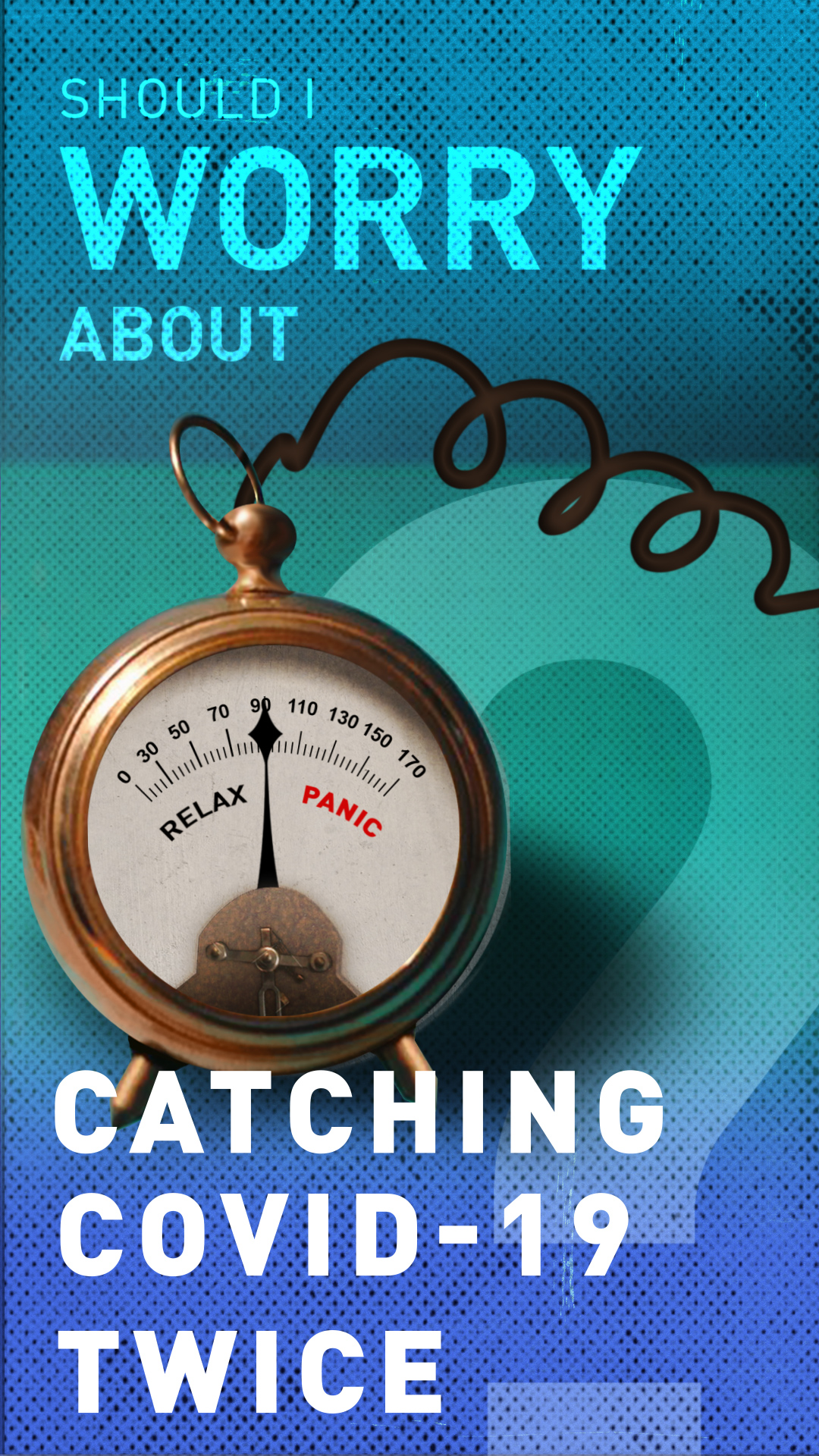03:32

What's the problem?
A crucial unanswered question on the COVID-19 pandemic is whether or not those who have been infected can catch it again?
The fight against COVID-19 could be made far easier if those infected develop an adequate level of immunity, through the development of antibodies. Conversely if reinfection cases are confirmed, the battle to suppress the disease will be that much harder.
Answering the questions on reinfection could hold the key to the regaining of personal freedoms for those who have developed antibodies, to the opening up of economies and, long term, could contribute to societies developing "herd immunity."
How can you become immune to COVID-19?
The human body's response to an infection develops in two parts. First an innate immune response, which releases chemicals and white blood cells that fight off and destroy a virus.
The second is an adaptive immune response, which, along with other effects, produces targeted antibodies that can attach to a virus and stop it. If the latter is strong enough it can create a lasting response to the infection that will provide a subject future protection.
Those with the strongest infections create the strongest immune response. As studies increasingly suggest the majority of those who contract COVID-19 have mild or no symptoms, they may have a poor immune response when the virus next gets into their system.
Even if immunity is developed, it is unclear how long it would last as COVID-19 has not been around long enough, although another coronavirus – the common cold – has a short-lived immunity. While antibodies of more severe coronaviruses, such as SARS or MERS, have been detected in subjects years after infection.

Much COVID-19 testing is done using nasal swab samples. /AP Photo/Elaine Thompson
Much COVID-19 testing is done using nasal swab samples. /AP Photo/Elaine Thompson
Can testing help?
Adrian Rabe, an epidemiologist at Imperial College London, notes that COVID-19 "reinfection cases" are not an "established phenomenon."
"What we do have are people testing positive again after supposedly recovering from COVID-19. And recent studies are now showing that these are possibly patients who have some viral fragments remaining after killing them off.
"Positive tests after recovery may either emanate from either a false negative, and this is especially when patients still exhibit symptoms of COVID-19, but the patients no longer have symptoms and they retest positive, then that's most likely from remaining viral particles from a previous infection."
READ MORE: Can new drug help speed up recovery from COVID-19?
Much of the confusion around reinfection comes from inadequate testing, patients believing themselves to be rid of the virus after a negative test and later testing positive or vice versa.
"The earlier antibody tests have proved to be quite inaccurate, with almost 30 percent being either falsely positive or falsely negative," explains Rabe. "Right now, we are approaching minimizing that error to around five to 10 percent. So tests are getting better."
Tests can also suffer from being hyper-sensitive, such as in the case of the reverse transcription polymerase chain reaction (RT-PCR) test, which will show a positive reading if it picks up "even a fragment of a DNA particle from COVID-19," according to Rabe.
The general rule is still to maintain physical distancing whether or not you're infected
- Adrian Rabe, epidemiologist at Imperial College London
What's the worst that could happen?
If those who have recovered from COVID-19 can be reinfected, the death toll from the virus could accelerate as the disease, suppressed by social restrictions, comes back to countries that have lifted lockdown.
If this is the case, the fight against the disease may not look any different. A vaccine would still need to be developed with or without reinfection cases, although the nature of the vaccine could change. Should immunity be short-lived, millions of people across the world may require a once-a-year vaccine, similar to the flu shot, which is recommended for people to take in the winter months.
How can you protect yourself and others?
Advice on how to avoid contracting and spreading the virus varies from country to country – as some are lifting lockdowns and easing restrictions, others are still in the tight grip of the pandemic. As questions remain over the threat of reinfection, Rabe encourages people adhere to social restrictions and regulations, even if they have recovered from the virus.
"The general rule is still to maintain physical distancing whether or not you're infected. And that's because at this point, we don't know. If someone continues to shed the virus..., if those viral particles are still living, then you can still transmit that to someone else. So the general rule is still to maintain physical distancing."
Video editor: Natalia Luz
Check out The Pandemic Playbook, CGTN Europe's major investigation into the lessons learned from COVID-19